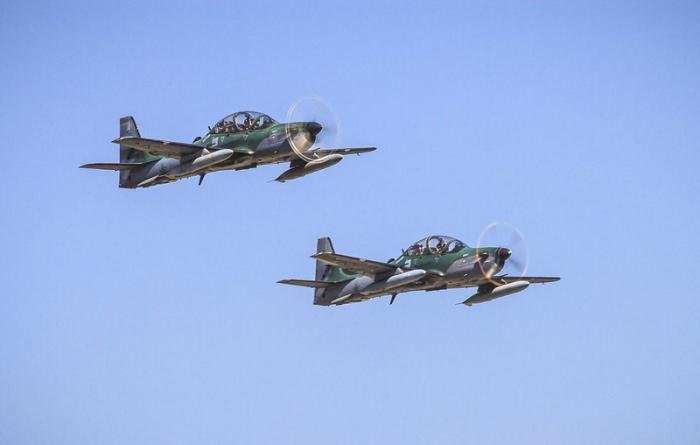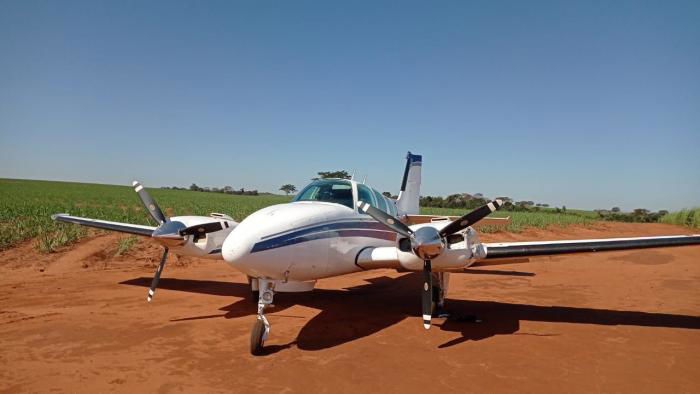A small, twin-engined aircraft carrying roughly 663kg (1,461lb) of cocaine base paste was successfully intercepted by two Força Aérea Brasileira (FAB; Brazilian Air Force)-operated Embraer A-29A/B Super Tucano light attack aircraft after it entered Brazilian airspace without authorisation on July 3.
In a press release issued by the FAB the same day, the Brazilian air arm stated that the two A-29A/Bs intercepted the light utility aircraft (believed to be a Beechcraft Baron 58) over the state of Mato Grosso do Sul at approximately 1236hrs (local time). The FAB explained that the Super Tucanos were scrambled to monitor and intercept the unauthorised aircraft, which had filed no flight plan and was classified as suspicious after its pilot failed to respond to hails from the A-29 pilots.

“The FAB pilots ordered the change of route and the mandatory landing at a specific aerodrome,” the FAB said. “However, the pilot of the intercepted plane did not obey. It was then necessary for the air defence [aircraft] to command the warning shot. Still no return, aircraft was considered hostile, and detention shooting procedures were carried out.”
Following the arrest shot, the aircraft made a forced landing in the Brazilian state of São Paulo, between the cities of Jales and Pontalinda. From then on, Brazilian Federal Police took over the mission. The FAB reported that two people escaped the downed aircraft before police forces arrived on the scene and discovered that the aircraft was carrying roughly 663kg (1,461lb) of cocaine base paste, which was subsequently confiscated.

This monitoring and interception mission was part of Brazil’s wider Operation Ostium – a joint force mission conducted by the FAB and Brazilian Federal Police to curb cross-border illicit acts, such as drug smuggling.

